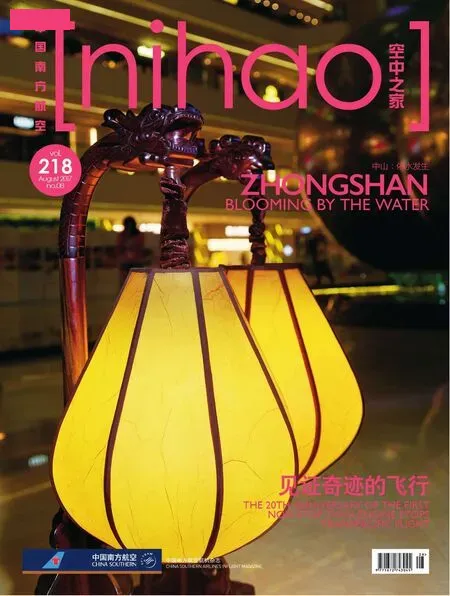How China could work with Britain on the Belt and Road initiative
Text by Zhao Lei Translation by Tao Wenjia Photos by CFP
How China could work with Britain on the Belt and Road initiative
Text by Zhao Lei Translation by Tao Wenjia Photos by CFP

The “Belt and Road” Initiative is closing the perception gap between China and Europe. For Chinese, Western Europe is no longer an old and rigid castle; and for Western Europeans, China is no longer an ancient wall.
Among the countries in Europe, Britain has been both commercial powerhouse and humanistic center. Several years ago, I had the privilege to have a short conversation with Oliver Lethwen, Britain's Minister for Government Policy in the Cabinet Offi ce. As former Oxford University professor, he said frankly: "Britain hopes that all types of Chinese enterprises will increase investment in Britain to upgrade the quality of British manufacturing, so that such manufactures would in turn be exported to China." It is obvious that when global economy is heading towards a new growth cycle, China becomes both in need of foreign investments, and needed by other countries to invest. Britain is also the fi rst member nation of the G7 to sign a bilateral currency swap agreement with China. Currently, 62% of offshore Yuan(Chinese currency) deal are conducted in London. Britain has clearly noticed that for the Chinese, Britain has its unique fi nancial attractions. Nowadays, Shaanxi and many other Chinese provinces strive to become fi nancial centers according to their own development visions and plans. So they should capitalize on the fi nancial advantages that Britain possesses to “borrow theboat to sail”, and to gain better achievements by synergy with the British counterparts.
Britain's humanistic tradition also attracts generations of Chinese students to study in the UK. Oxford University's Vice Chancellor once said that the purpose of British education is to cultivate the consciousness of the social elite, that is, critical thinking, independent thinking, interdisciplinary knowledge, international perspective, and a sense of social responsibility. The above-mentioned consciousness of the elite is very much needed in Chinese society; therefore there is much room for the future cooperation between China and Britain in education and other related fi elds.
In addition, China and Britain can strengthen their media cooperation on the “Belt and Road” initiative. The media industry is well developed in the UK, so the Kingdom has a strong voice in international society. On the other hand, China has a media market that is growing gradually. The possible contents of media cooperation includes a joint survey to understand what aspects of the “Belt and Road”the audience tend to pay attention to; co-production of documentaries to showcase what the initiative is about; strengthening the communication of ideas and practices in media industry to train media talents; as well as broader bilateral cooperation on newspapers, magazines, books, TV, broadcast and a variety of audio and video products. The media infl uence is part of the cultural soft power, so such infl uence should become one focus of the “Belt and Road” cooperation between China and Britain.

Zhao Lei
professor at the Institu te for International Stra tegic Studies of the Pa rty School of the Centr al Committee of the CP C, a director of the Res earch Office for Interna tional Relations and Na tional Unity. Mr. Zhao heads a key research project on the Belt and Road Initiative at CPS, and is the founder of th e forum “The Belt and R oad 100”.
赵磊
中共中央党校国际战略研究院教授、国际关系与国家统一研究室主任、中央党校“一带一路”重点研究课题主持人,“一带一路百人论坛”发起人。
——画家赵磊博采众长成大道

